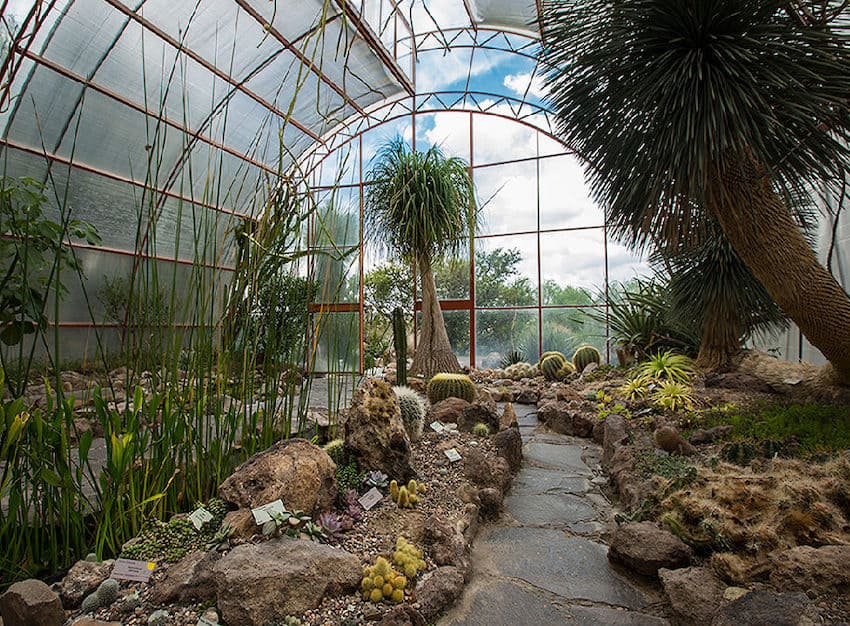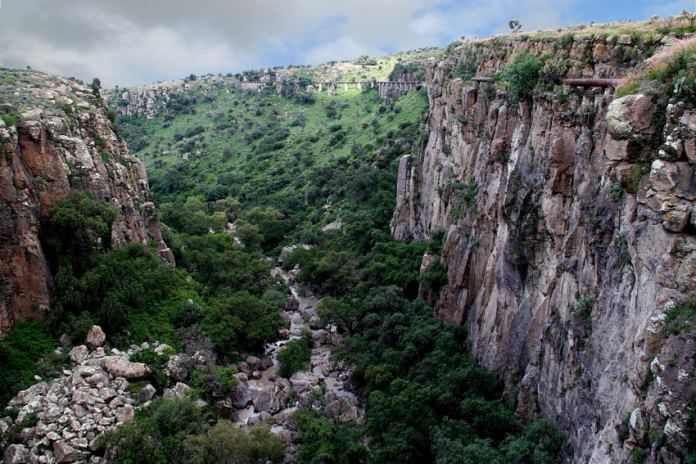A new plant has been discovered in a popular botanical garden in the foothills of San Miguel de Allende, Guanajuato.
Biologist José Viccon, a professor at Mexico City’s Autonomous Metropolitan University, made the discovery during a routine walk through El Charco del Ingenio, a 165-acre reserve in the tourist destination.
The diminutive plant growing in the San Miguel nature reserve was apparently overlooked for years.
Perhaps a few of the reserve’s visitors had seen what Viccon did — a dwarf plant from the same family as the pineapple — but only he realized that it was a plant never before identified anywhere in the world. It grows on rocks and requires very little water to survive.
“They have a characteristic grayish-green color and trichomes, those little hairs with which they absorb the little humidity that there is in the environment,” said Viccon, who has spent a lot of time making his discovery official after first spotting it four years ago.
“It is not easy to discover a unique species, and even less so at a site studied in detail for 32 years,” said the researcher, based on UAM’s Xochilmilco campus, just south of Mexico City. “It is a great challenge.”
His discovery has been classified as Viridantha minuscula, although the newspaper El País speculated that regular folks will call it the “Charco bromeliad” because of the site of its discovery.

El Charco del Ingenio — a semi-desert environment that includes a big cactus collection and other indigenous flora — is an easy drive from the tourist center of San Miguel de Allende, or a 30- to 45-minute uphill walk.
The bromeliad family of flowering plants includes about 3,700 known species. The pineapple is a bromeliad, as are many plants that adorn houses and gardens.
The stem of Viridantha minuscula is between 7 and 8 centimeters (2.75 to 3.15 inches) in diameter, and its green and yellow flowers are relatively large for a plant barely 2 inches tall. The flowers are enclosed in a calyx of pinkish spades (like the plume atop a pineapple).
While it is not edible, the plant could prove an extraordinary find for bromeliad collectors.
Viccon said the journal Phytotaxa has approved the finding, and noted that there is an agreement among biologists to not name a new species after the discoverer.
Mario Hernández, the Charco del Ingenio’s director, explained how Viccon made his initial discovery, then “had to wait months for it to flower to confirm that this plant had characteristics that were not entirely familiar to him.”
He then “summoned other colleagues to visit” the gardens, and “none of them were completely certain” of what they were seeing. Convinced, Viccon then began his quest to get the little plant certified as a new species.
Such a discovery is not uncommon. With thousands of biologists combing diverse territories all over the planet, and with nature always changing, annual discoveries of new plant species globally number from 1,850 to 18,000, according to various reports.
